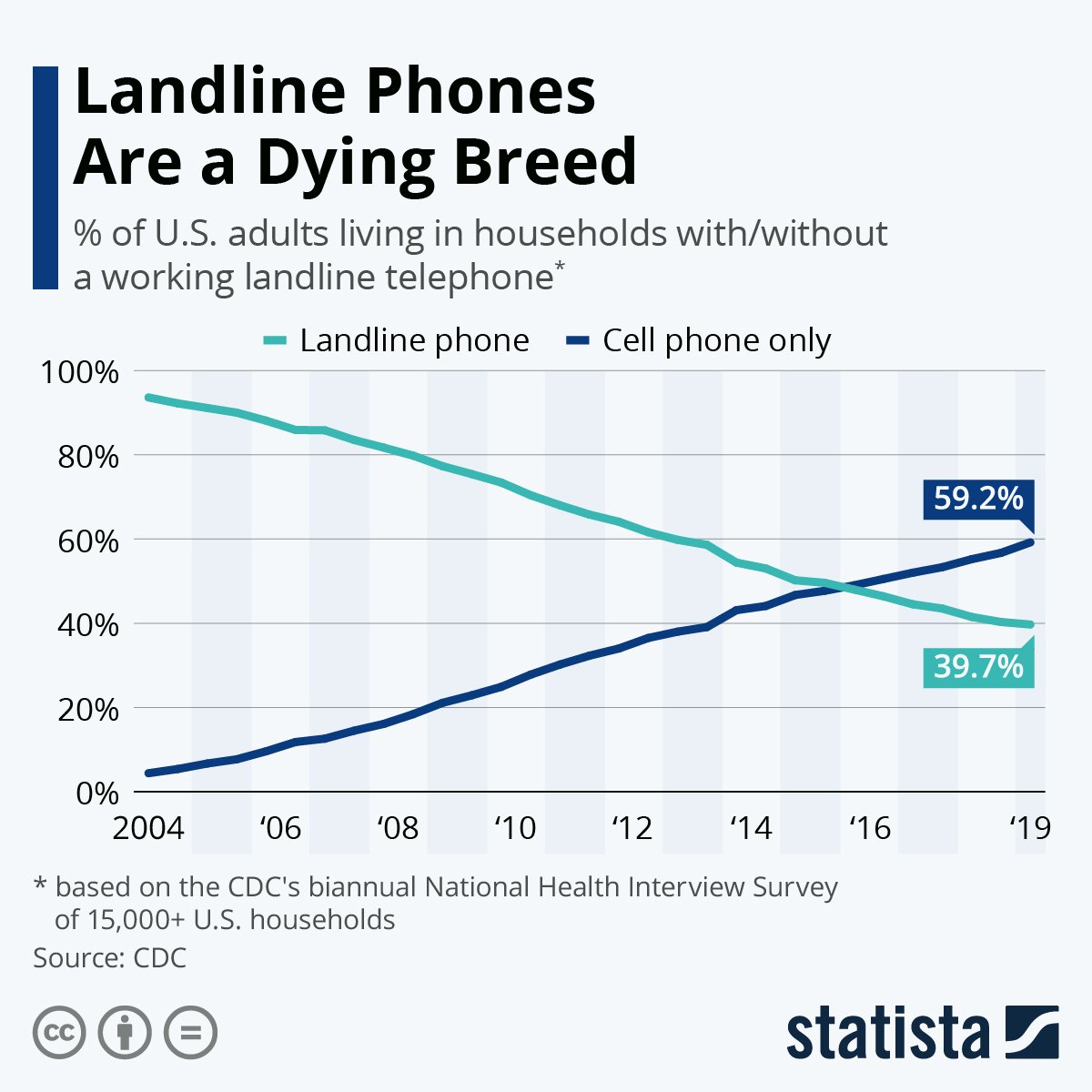In this day and age, the knee-jerk reaction might be, “Why yes, of course landlines are obsolete!” However, this is a surprisingly nuanced question. You’d think that several decades after the cell phone’s invention and the fact that we all have a mini computer in our pockets would make the answer obvious. But for those in the majority of geographic America and even suburban homes near rocky outcroppings, the old copper standby is significantly more reliable. And for some, landlines are a great way to stay connected without feeling indentured to their smartphone. Unfortunately, telcos disagree and there’s not much we can do about that. Here’s why.
The PSTN Infrastructure Is Crumbling
America has an infrastructure problem that no “Infrastructure Week” could fix. Communications are right there in the failing class with the rest. On paper, it makes perfect sense. Most American households have ditched their house phone already, and numbers continue to decline. Major companies like PwC and Ford’s Detroit HQ ripped out their office landlines in favor of VoIP or personal mobiles. So the cost of subsidizing PSTN infrastructure maintenance for those outside of areas already moving into 5G is, from a business and tax standpoint, untenable. On top of that, telcos cite manufacturers moving away from the parts they need anyway. Manufacturers have seen the writing on the wall and are now focusing their efforts on technology’s forward momentum. It’s like Apple effectively killing off one iPhone with each software update (RIP the iPhone 6S). Eventually, you have to move on from the older tech and focus on the larger population using the newer tech.

Naturally, some customers aren’t thrilled with this push, especially since any attempts at phone line repair lead to a major material switch or no fix at all.
“Fiber Is the Only Fix”
Verizon’s infrastructure program over the past decade focused on some infrastructure repair. Well, less “repair” than “upgrade,” if you consider fiber an upgrade. For those who want faster Internet? Total upgrade. Those who prefer copper’s reliability are out of luck. And therein lies the true reason landlines are heading for the technology graveyard. The whole point of keeping a landline phone is for its reliability. It works in a power outage—fiber networks require you to purchase a backup battery and hope it’s not out of juice when blackouts hit. The FCC required 24-hour backup systems starting in 2018, but anyone who’s lived through major storms (read: all of us) knows that utilities can take quite a while to come back up.

In 2019, Verizon filed with the FCC to retire copper entirely. AT&T has similar plans. Unfortunately, filing doesn’t require them to give any details, so everyone’s left in the dark for specifics. Want to know what this means for areas that haven’t yet received fiber replacements for copper setup? Or what this means for your area with a Verizon monopoly? Good luck finding out!
“If customers lose Verizon service, they could find themselves with no communications alternative. Is Verizon really going to build FiOS fiber in all of the rural areas around the cities they serve?” —POTs and PANs
So what to do if you find yourself face to face with Verizon dodging the question of copper repair? Find a better option outside of major telcos.
Landline Alternatives
You thought we’d get through this piece without mentioning the advantages of VoIP, didn’t you? Silly reader, phone calls are for the Internet!
While the lack of reliable Internet across the country is an issue for another blog, it’s still more reliable than finding cell service in rural America. And as mentioned earlier, you’ll have better luck getting fiber connections to your house than tracking down landline repair.
Because VoIP works on any Internet-connected device, it doesn’t matter if your phone doesn’t have any bars—you can use your WiFi connection, a tablet, or your computer. And in the event of a Halloween slasher flick come to life, it’s doubtful the villain will destroy everyone’s WiFi access, so you can just borrow your neighbor’s login. (We didn’t tell you that.) Besides, VoIP comes at a significantly lower cost and allows you to tailor features to your needs.
As a final nail in the copper coffin, we’d like to reference an article we came across while researching this piece. It starts out claiming Millennials would be shocked to learn about cassette tape answering machines for landlines. Either the writer forgot that Millennials were born in the ‘80s and ‘90s or meant to say “Generation Z.” Either way, if it’s time to jump to a new generation when discussing who does and does not remember old technology, it’s probably time for the sun to set on it.

